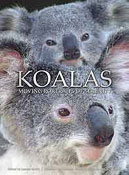AU summit opens with call to globalization
The African Union Summit, which convenes today in Addis Ababa, Ethiopia, will face several challenges not the least of which is likely to be the issue of science and technology development on the continent.
 In his opening address to the delegates, Calestous Juma, chairperson of the African Union's high-level panel on biotechnology, urged the summit to work toward the establishment of a council on science, technology and innovation, which would be under the joint direction of the Presidents of the AU’s member countries. Juma is Professor of the Practice of International Development at the Harvard University John F. Kennedy School of Government.
In his opening address to the delegates, Calestous Juma, chairperson of the African Union's high-level panel on biotechnology, urged the summit to work toward the establishment of a council on science, technology and innovation, which would be under the joint direction of the Presidents of the AU’s member countries. Juma is Professor of the Practice of International Development at the Harvard University John F. Kennedy School of Government.
When thinking of Africa, one generally thinks of the potent issues of poverty, disease, civil strife, war and genocide, which have plagued modern African nations for much of the last 100 years. It seems, to many Africans, disingenuous to discuss advancing technology and science when most Sub-Saharan Africans live on less than $8.00 a day.
In fact, as if to illustrate that very point, the children’s protest, which marked the closing Friday of the World Social Forum in Nairobi, Kenya seems testimony to the issue of grinding African poverty, as approximately 40 street children from a nearby slum in the heart of Nairobi raided the tent of a food caterer, chased away the staff and helped themselves to the food.
The vendor, an upscale caterer from a local golf/ country club, relented and allowed the youth protest to go unchallenged. The action organized by a group called the Progressive Youth Organization protested, that the five-star hotels “had no business selling food at the WSF, saying their prices were too high."
The ongoing genocide in Darfur (see: All Africa article), deforestation in Kenya and the increasingly punitive and violent exploitation of South Africa’s mineral wealth by giants like DeBeers, Rio Tinto, even China (see Times article 1/29/07) would appear to most observers to take precedence over science and technology development.
Just the opposite says Juma; he believes the initial focus should be on making effective use of technology and scientific innovations that are relevant to local needs and are ready for commercialization, including techniques for disease control, pest tolerance and weed management. He went on to say, "I will consider the summit a success if a handful of leaders return home emboldened to champion the role of technological innovation in developing their country and region."
The African Union, unlike its European counterpart, the EU, has no standardized trade agreements, infrastructure or unified monetary system. What it does have is a series of broken governments, hereditary tribal mistrust and a history of western colonial abuses.
Africa also has one seventh of the world’s population, twenty percent of the world’s land space and much of the world’s mineral and ecological wealth. Africa is a land with rich traditions, an ancient historic place and, if she is to succeed as a continent in the 21st century, then perhaps Calestous Juma is correct, it is time for the AU to put forth its best and brightest innovations and join the world market.
By Harlan Weikle
Greener Magazine
Keyword:: AFRICA AU GLOBILIZATION ADDIS ABABA SUMMIT JUMA
 In his opening address to the delegates, Calestous Juma, chairperson of the African Union's high-level panel on biotechnology, urged the summit to work toward the establishment of a council on science, technology and innovation, which would be under the joint direction of the Presidents of the AU’s member countries. Juma is Professor of the Practice of International Development at the Harvard University John F. Kennedy School of Government.
In his opening address to the delegates, Calestous Juma, chairperson of the African Union's high-level panel on biotechnology, urged the summit to work toward the establishment of a council on science, technology and innovation, which would be under the joint direction of the Presidents of the AU’s member countries. Juma is Professor of the Practice of International Development at the Harvard University John F. Kennedy School of Government.When thinking of Africa, one generally thinks of the potent issues of poverty, disease, civil strife, war and genocide, which have plagued modern African nations for much of the last 100 years. It seems, to many Africans, disingenuous to discuss advancing technology and science when most Sub-Saharan Africans live on less than $8.00 a day.
In fact, as if to illustrate that very point, the children’s protest, which marked the closing Friday of the World Social Forum in Nairobi, Kenya seems testimony to the issue of grinding African poverty, as approximately 40 street children from a nearby slum in the heart of Nairobi raided the tent of a food caterer, chased away the staff and helped themselves to the food.
The vendor, an upscale caterer from a local golf/ country club, relented and allowed the youth protest to go unchallenged. The action organized by a group called the Progressive Youth Organization protested, that the five-star hotels “had no business selling food at the WSF, saying their prices were too high."
The ongoing genocide in Darfur (see: All Africa article), deforestation in Kenya and the increasingly punitive and violent exploitation of South Africa’s mineral wealth by giants like DeBeers, Rio Tinto, even China (see Times article 1/29/07) would appear to most observers to take precedence over science and technology development.
Just the opposite says Juma; he believes the initial focus should be on making effective use of technology and scientific innovations that are relevant to local needs and are ready for commercialization, including techniques for disease control, pest tolerance and weed management. He went on to say, "I will consider the summit a success if a handful of leaders return home emboldened to champion the role of technological innovation in developing their country and region."
The African Union, unlike its European counterpart, the EU, has no standardized trade agreements, infrastructure or unified monetary system. What it does have is a series of broken governments, hereditary tribal mistrust and a history of western colonial abuses.
Africa also has one seventh of the world’s population, twenty percent of the world’s land space and much of the world’s mineral and ecological wealth. Africa is a land with rich traditions, an ancient historic place and, if she is to succeed as a continent in the 21st century, then perhaps Calestous Juma is correct, it is time for the AU to put forth its best and brightest innovations and join the world market.
By Harlan Weikle
Greener Magazine
Keyword:: AFRICA AU GLOBILIZATION ADDIS ABABA SUMMIT JUMA



9:40 PM









<< Home